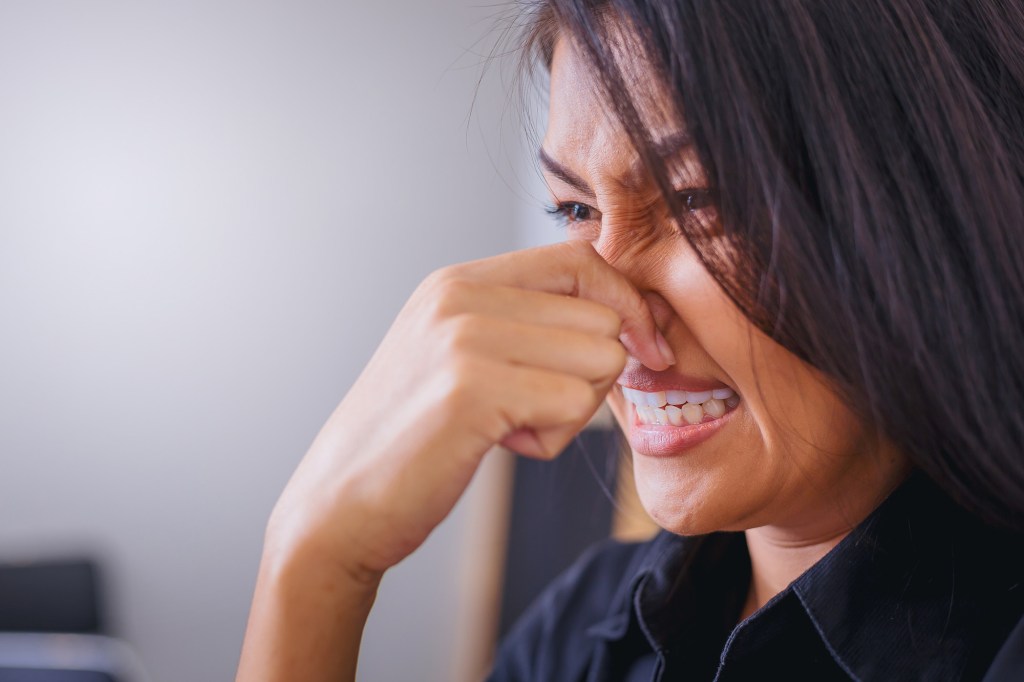In medical terminology, two terms are used for bad breath: “Foeter ex ore” and “Halitosis”. They are often used synonymously. Bad breath is a big problem for many people and in many ways an uncomfortable taboo subject. Although bad breath rarely indicates a serious health problem, it is extremely unpleasant for those affected. For many of those affected, this is initially incomprehensible, as they often do not even notice the bad smell. Bad breath is usually caused by insufficient oral hygiene. Then the bacteria responsible for the bad breath multiply. Read here how to get rid of it.
Causes of bad breath
Bad breath usually comes directly from the mouth or throat. Only rarely can the stomach or oesophagus be the cause of bad breath. The most common cause is irregular brushing of the teeth. An unpleasant-smelling, shameful plaque forms. Dozens of bacteria from food residues, dead cells and blood accumulate in the mouth, which is unhealthy for dental hygiene. They adhere to teeth, gum pockets and defective fillings. Bacteria also settle on our tongue. Among other things, these microorganisms excrete sulphur compounds in our mouths that are unpleasant to the human nose. Bad breath can also be caused by low saliva flow. This happens, for example, when we sleep or talk too much, smoke or drink very little. Generally, unpleasant odours coming from the mouth occur after eating. The main causes are also: smoking, alcohol, garlic or onions.
However, if the bad breath lasts longer, you should see a doctor, because then there may be invisible diseases or inflammations. This could be caries or tonsillitis, for example. But the sinuses can also be affected. Diabetes, kidney failure and stress can also be the result of bad breath. However, this is a rather rare case. However, you must seek treatment immediately.
You can use a cotton swab to test if you have bad breath. Hold the cotton swab near your throat, scrape off some of the tongue coatings and take a sample of the smell. However, as you are already used to your breath, you may not notice the unpleasant smell. If you are concerned, you should ask someone you trust about your bad breath.
How to get rid of it
- Tip 1: Regular brushing is of course the most important prerequisite for fresh breath. Electric toothbrushes achieve better results than normal toothbrushes. You should also floss your interdental spaces once a day. Mouthwashes can also help.
- Tip 2: Not only your teeth but also your tongue should be cleaned regularly. Some toothbrushes have rubber elevations at the back of the brush head that makes it easier to clean the tongue. There are also special tongue brushes. Don’t be afraid to use toothpaste to clean your tongue.
- Tip 3: Drinking plenty of fluids is very important. Water or tea is best, especially black tea. This promotes fresh breath. The polyphenols in tea can inhibit the growth of specific bacteria that cause bad breath.
How to get rid of it with naturally
- Tip 1: Herbs are an old household trick against bad breath. The essential oils of parsley suppress annoying odours for a short time. If you chew on parsley, peppermint or sage for about ten minutes, your breath will become fresh again relatively quickly.
- Tip 2: Chewing ginger, fennel seeds, coffee beans, cloves or juniper berries also inhibits bad-smelling breath. That’s why peppermint and fennel tea are also good for bad breath.
- Tip 3: Chlorophyll binds bad odours and is available as lozenges in pharmacies.
- Tip 4: Natural yoghurt is said to dispel unpleasant odours. The yoghurt should not contain sugar and should not be sweetened.



